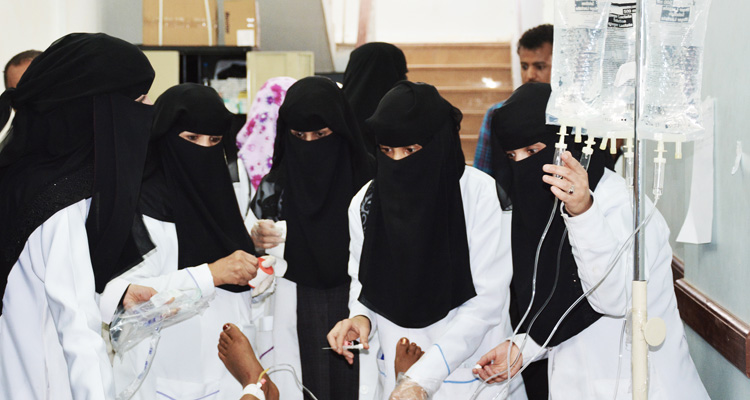 Photo credit: WHO/Sadeq Hasan
Photo credit: WHO/Sadeq Hasan
Eleven of the 22 countries and territories in the WHO Eastern Mediterranean Region have experienced conflict in recent years. The Region is also prone to natural and climate change-related disasters.
Health workers are at the forefront of any emergency response. Their own health, safety and security are at high risk whether the emergency is a disease outbreak, natural disaster, conflict or other crisis.
The COVID-19 pandemic has also highlighted the critical role of health workers and how important it is to protect and safeguard them. Hundreds of thousands of health workers have been infected with COVID-19 in the course of their work. Tens of thousands have died while working to save others.
The rapid increase in workload due to the pandemic has led to highly stressful working environments and long working hours, resulting in psychological distress, fatigue and occupational burnout. The global shortage of health workers has grown and continues to grow.
The WHO Regional Office for the Eastern Mediterranean develops guidance notes and other tools to support health workforce capacities for emergency response.








